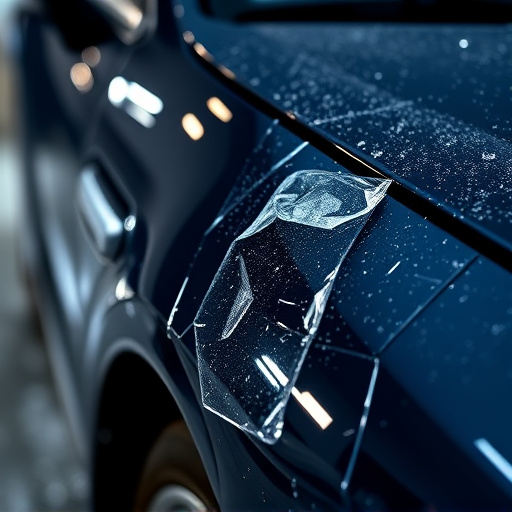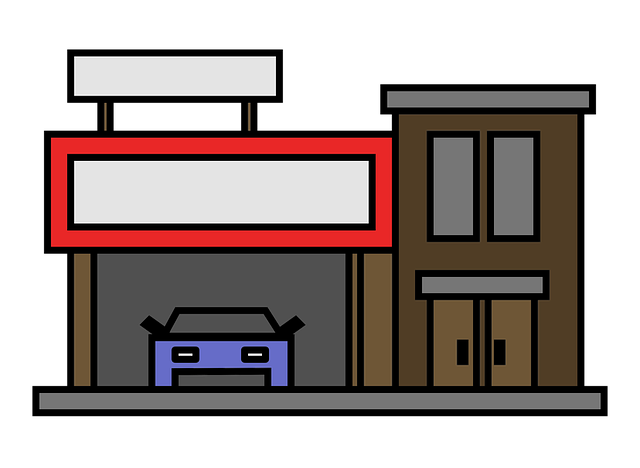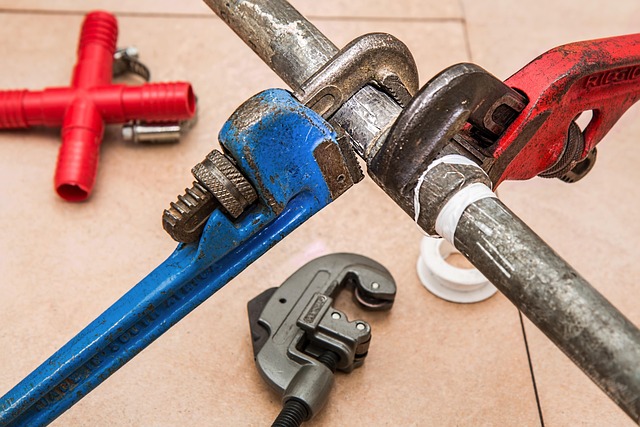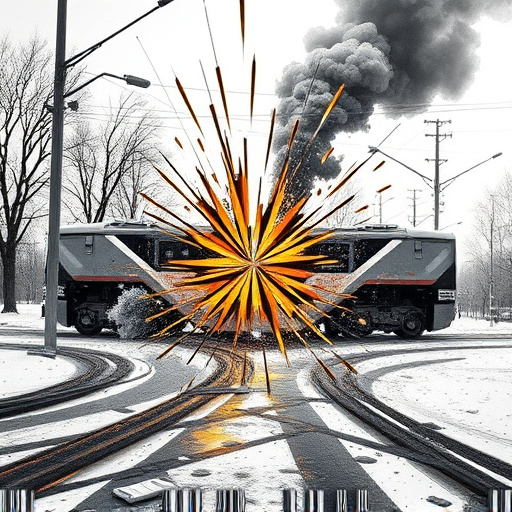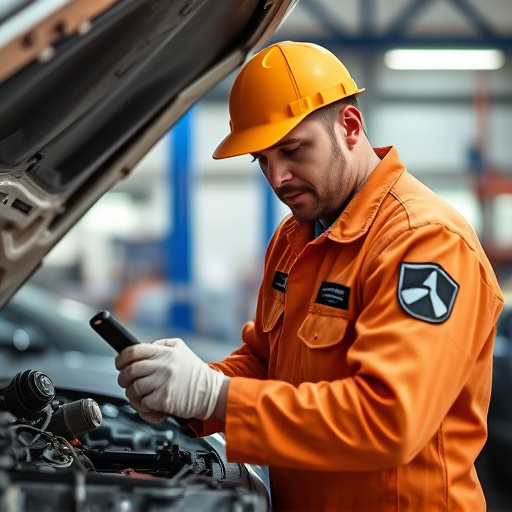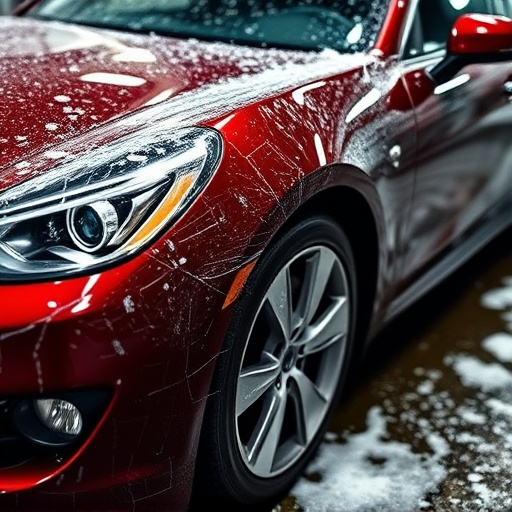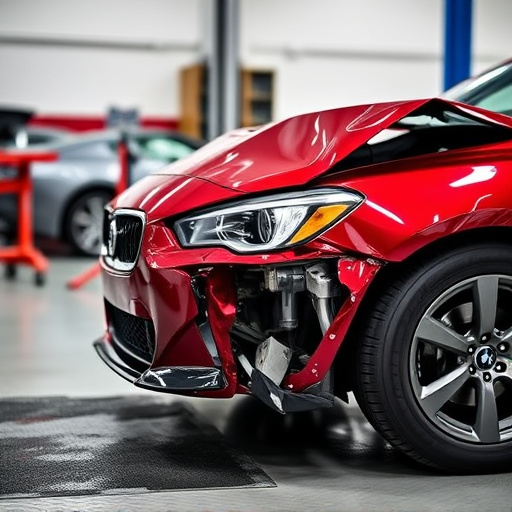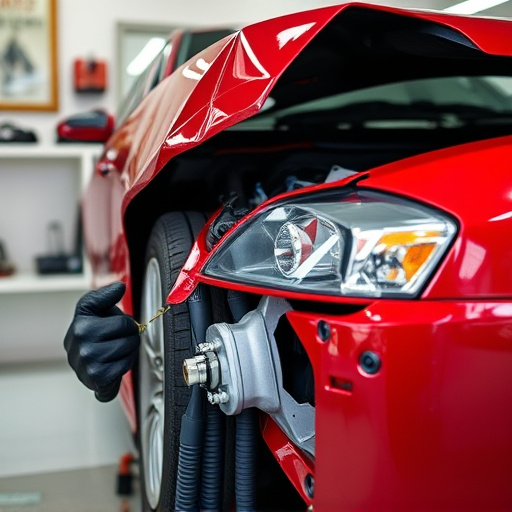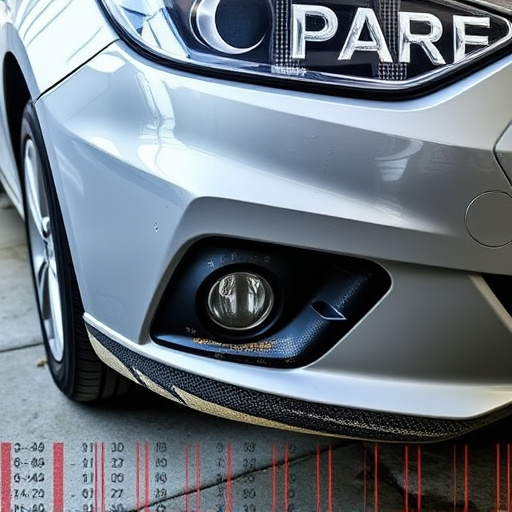The automotive industry's rapid evolution demands auto shops to adopt advanced welding techniques like laser, robot-assisted arc, and TIG welding for precision and structural integrity in modern vehicles. These methods enable faster, cleaner repairs, enhance vehicle quality and safety, and meet the high standards of manufacturers and consumers in today's market. Shops implementing these techniques see increased efficiency, reduced turnaround times, superior fit and finish, and improved customer satisfaction.
In today’s rapidly evolving automotive landscape, advanced welding techniques are no longer an option but a necessity for auto shops. The industry is witnessing unprecedented technological advancements in vehicles, from electric motors to sophisticated safety systems. To stay relevant and meet modern repair demands, auto shops must embrace advanced welding methods. This article explores the benefits of implementing these techniques, including enhanced efficiency, improved quality, and future-proofing your shop against obsolescence.
- The Evolving Landscape of Automotive Repair: Why Advanced Techniques Are in Demand
- – Discussing the rapid advancements in vehicle technology and the need for auto shops to keep up with modern repair methods.
- Benefits of Implementing Advanced Welding: Enhancing Efficiency and Quality
The Evolving Landscape of Automotive Repair: Why Advanced Techniques Are in Demand
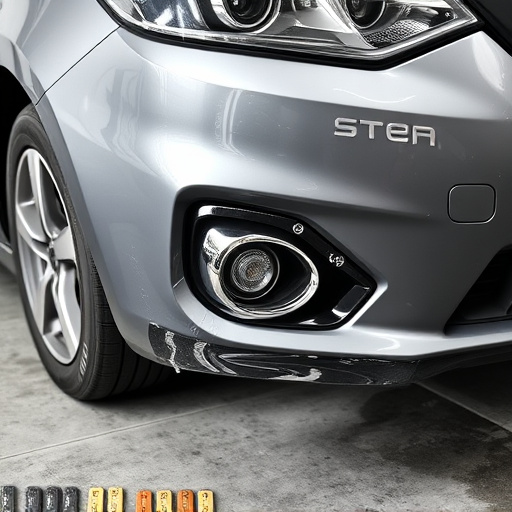
The automotive industry is constantly evolving, with advancements in technology and design pushing the boundaries of what cars can do and how they look. This evolution has significantly impacted the landscape of automotive repair, as shops are now required to offer more specialized services to cater to modern vehicles’ complex structures and safety features. In response to these changing demands, advanced welding techniques have become a must for auto shops to stay relevant and competitive.
The need for sophisticated welding methods is particularly pronounced in car bodywork services and auto collision repair. With sleek, lightweight materials becoming the norm in newer models, traditional welding practices may not be adequate to ensure structural integrity and aesthetic precision. Advanced techniques such as laser welding, robot-assisted arc welding, and TIG (Tungsten Inert Gas) welding allow for greater control, accuracy, and versatility in repairing and restoring car bodies. These methods enable auto shops to handle a wider range of repairs, from intricate panel replacements to complex structural repairs, all while maintaining the highest standards of quality and safety.
– Discussing the rapid advancements in vehicle technology and the need for auto shops to keep up with modern repair methods.
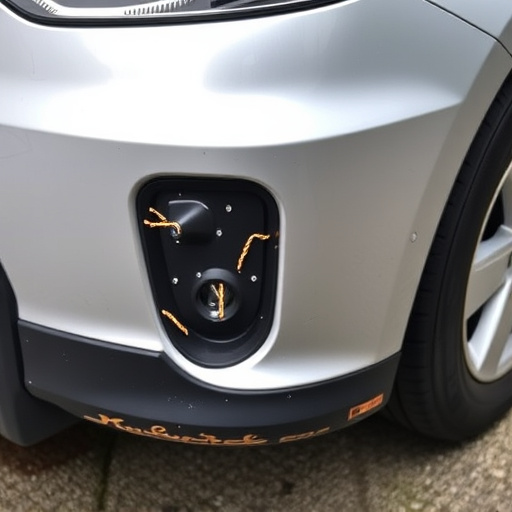
The automotive industry is undergoing a rapid evolution, driven by advancements in vehicle technology. Electric and autonomous vehicles are becoming more prevalent, while connected cars offer unprecedented levels of integration and sophistication. In this dynamic landscape, auto shops must adapt to modern repair methods to remain competitive and cater to evolving customer needs. Traditional welding techniques, though still widely used, may not be sufficient for the intricate and precise repairs required by today’s advanced automobiles.
Consequently, auto body restoration and maintenance have become more complex, demanding higher levels of skill and expertise from technicians. Advanced welding techniques, such as laser welding and robot-assisted welding, are revolutionizing the automotive industry by enabling faster, cleaner, and stronger bonds. These modern methods not only enhance the quality of repairs but also contribute to improved vehicle safety and performance, ultimately meeting the high standards set by both manufacturers and consumers in the contemporary market.
Benefits of Implementing Advanced Welding: Enhancing Efficiency and Quality
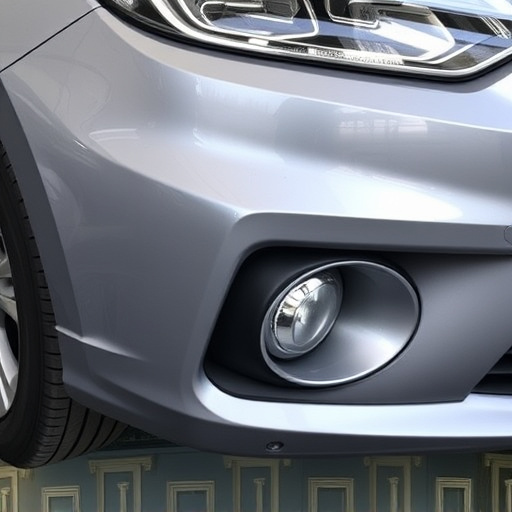
Implementing advanced welding techniques offers significant advantages for auto shops, directly impacting their efficiency and quality standards. These modern methods allow for faster repair and restoration processes, reducing turnaround times and increasing productivity. With precision welding, auto body shop technicians can make intricate and precise cuts and welds, ensuring a more seamless fit and finish during the auto body painting and collision center stages.
Advanced welding techniques also contribute to improved structural integrity of vehicles. The specialized methods provide stronger bonds, enhancing safety features and overall vehicle performance. This is particularly crucial for auto collision centers dealing with damaged cars, where precise welding repairs are essential to restore the vehicle to its pre-accident condition, ensuring customer satisfaction.
In today’s rapidly evolving automotive landscape, advanced welding techniques are no longer an option but a necessity for auto shops. The demand for sophisticated repair methods mirrors the intricate design and technology incorporated in modern vehicles. By adopting these techniques, auto shops can significantly enhance both efficiency and quality, ensuring they remain competitive and meet the high standards expected by today’s drivers. This shift not only improves customer satisfaction but also positions workshops as leaders in their field, ready to tackle the challenges of tomorrow’s automotive repairs.
